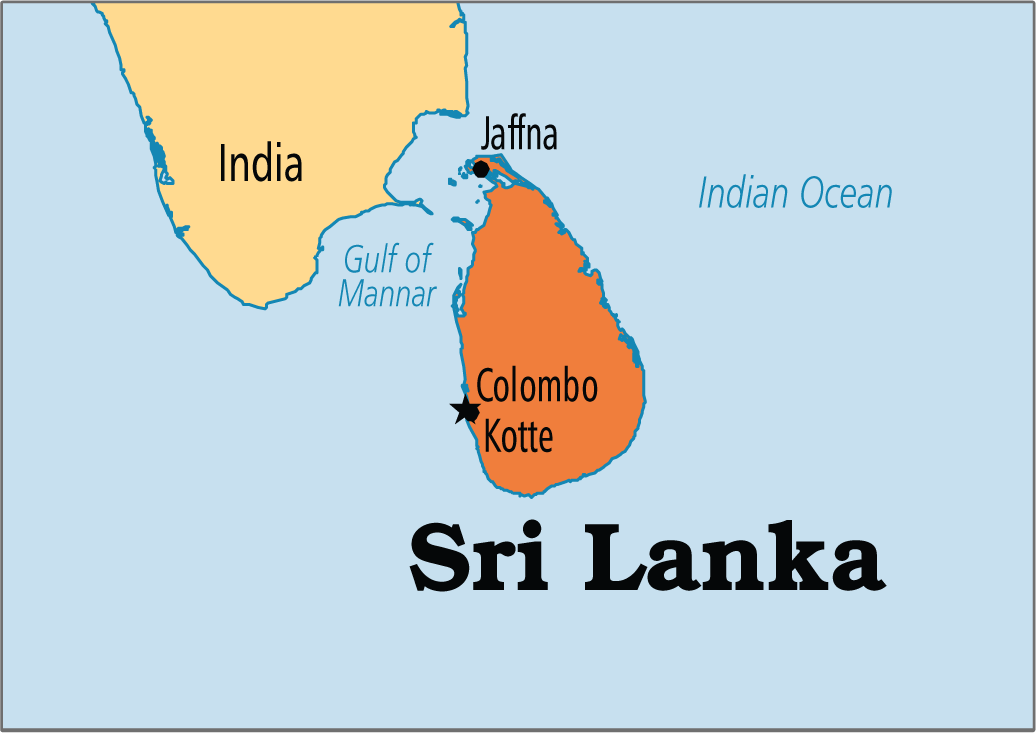India- Sri Lanka | 03 Dec 2019
Why in News
The newly elected Sri Lankan President Gotabaya Rajapaksa visited India from 28th-30th November 2019.
- The Sri Lankan President played a major role in ending the country’s civil war (1983-2009).
- The President’s two brothers, Mahinda Rajapaksha and Chamal Rajapaksha, hold the position of the Prime Minister and Agricultural Minister respectively in Sri Lanka.
Sri Lanka’s Civil War
- Sri Lanka has been mired in ethnic conflict since the country, formerly known as Ceylon, became independent from British rule in 1948.
- After independence, the Sinhalese majority immediately began to pass laws that discriminated against Tamils (Hindu in religion), particularly the Indian Tamils brought to the island by the British.
- In 1972, the Sinhalese dominated government changed the country’s name from Ceylon to Sri Lanka and made Buddhism the nation’s primary religion.
- As ethnic tension grew, in 1976, the LTTE or the Liberation Tigers of Tamil Eelam was formed under the leadership of Velupillai Prabhakaran, and it began to campaign for a Tamil homeland in northern and eastern Sri Lanka, where most of the island’s Tamils reside.
- The conflict between the Sri Lankan government and LTTE lasted nearly three decades, ending in 2009 when the LTTE forces were finally defeated.
- The war was one of the longest-running civil wars in Asia.
Key Points
- Issues Discussed: Strengthening of trade ties, boosting maritime security, addressing concerns of the fishermen, fulfilling aspirations of Tamil community in Sri Lanka and to fight against terrorism.
- Line of Credit
- India extended a $400 million line of credit to Sri Lanka to help strengthen its infrastructure and economy.
- An additional $50 million to help Sri Lanka combat terrorism.
- Sri Lankan President extended an invitation to the Prime Minister of India to visit Sri Lanka at a mutually convenient time.
India - Sri Lanka Relations
- India is Sri Lanka's closest neighbour. The relationship between the two countries is more than 2,500 years old and both sides have built upon a legacy of intellectual, cultural, religious and linguistic intercourse.
- During the course of the civil war, India supported the right of the Government of Sri Lanka to act against terrorist forces.
- The Indian Housing Project is Government of India’s flagship project of developmental assistance to Sri Lanka. Its initial commitment is to build 50,000 houses for those affected by the civil war as well as for the estate workers in the plantation areas.
- Given the proximity of the territorial waters of both countries, especially in the Palk Straits and the Gulf of Mannar, incidents of straying of fishermen are common. Both countries have agreed on certain practical arrangements to deal with the issue of bona fide fishermen of either side crossing the International Maritime Boundary Line.
- India and Sri Lanka conduct joint Military ( 'Mitra Shakti') and Naval exercise (SLINEX).
- Recently, the Chennai (India) -Jaffna (Sri Lanka) flight service has resumed after a gap of 41 years.
- The flight operations were suspended during the decades-old civil war in Sri Lanka.
